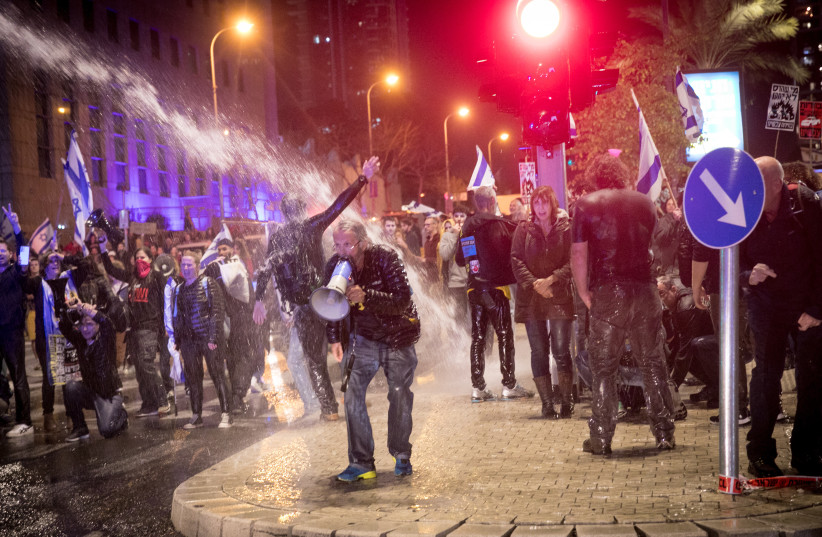The Knesset National Security Committee held a meeting on Wednesday to examine actions to “prevent harm to an elected official at a demonstration or protest near his house,” following stormy protests since last week against the government and in favor of a hostage deal.
The session, which was convened at the request of Likud MK Amit Halevy, came two days after Prime Minister Benjamin Netanyahu headed a meeting on the same subject with National Security Minister Itamar Ben-Gvir, Justice Minister Yariv Levin, Israel’s police commissioner, and other ministers. The Prime Minister’s Office did not put out a statement on the content of Monday’s meeting.
A number of ministers and Knesset members from the coalition publicly criticized protest groups last week after a torch was thrown at a police cavalry officer and after protesters succeeded in evading the police and approaching Netanyahu’s private residence on Aza Street in Jerusalem. Some argued that the prime minister’s life had been in danger, but the Israel Police denied this. On Saturday night, a man rammed into protesters in Tel Aviv, injuring five people.
Netanyahu addressed the events in remarks at the beginning of Sunday’s government meeting, saying that “most of the people, including me, condemn violence among us – rioting and lawlessness, ramming into protesters or attacking police officers, reckless and violent incitement for murder on social media.”

Police data shows 141 elected officials are currently designated as threatened
According to data presented by Dep.-Ch. Shlomi Sagi, head of the police’s operations division, during Wednesday’s Knesset National Security session, 141 elected officials are currently designated as being “threatened.” Sagi added that according to the law, citizens do not need approval from the police to demonstrate, but do need approval for marches.
He also rejected claims by Knesset members from the coalition that the police were conducting selective enforcement and not doing enough to prevent law-breaking during the anti-government protests, stating that “the police is not interested in which side the protesters are, but that all who participate return home safely, while maintaining the balance between the freedom of assembly and the freedom of movement of the general public.”
Knesset members from the opposition criticized the topic of the session. Labor MK Gilad Kariv argued that the session should focus not on the protesters but on police use of force against the protesters. Yesh Atid MK Karin Elharrar added that violence on all sides must be condemned, and that she did not hear condemnations from members of the coalition of the ramming incident.
“I understand that you are having a hard time, it is not pleasant when people demonstrate against you. On the other hand, freedom of expression and the right to demonstrate is a fundamental value in democracy.”
Other Knesset members from the opposition pointed out that at the same time as the National Security Committee session, a Knesset caucus to support the hostages being held by Hamas in Gaza was also meeting, but that while over five Knesset coalition members attended the committee session, only one Knesset member from the coalition attended the caucus session – the caucus’s co-chair, Likud MK Boaz Bismuth. At least 13 Knesset members from the opposition attended the caucus session.
